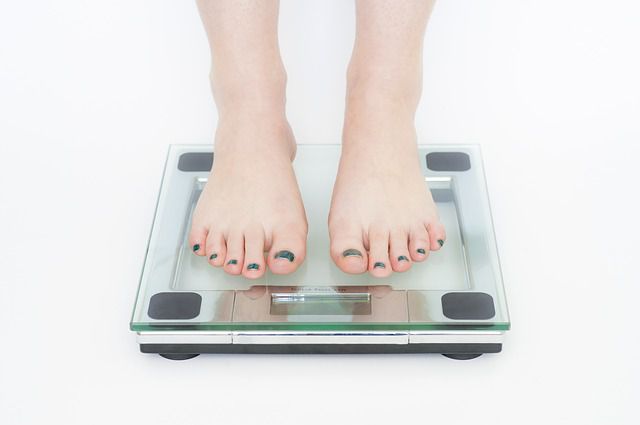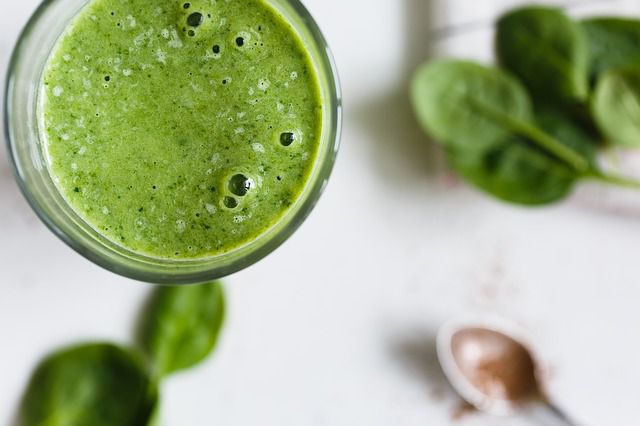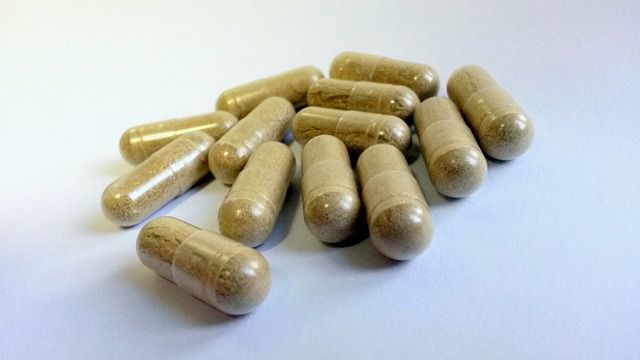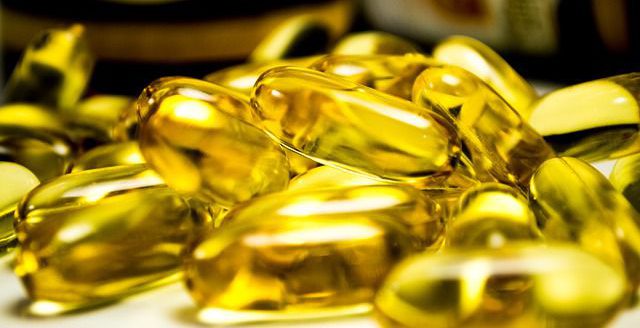
Wouldn’t it be if great you could use natural treatment for PCOS instead of the usual birth control pills and other medications?
While birth control pills may reduce PCOS symptoms, looking deeper, they only act as a band-aid for the underlying issues causing the PCOS and can eventually lead to a host of other symptoms and problems.
I felt compelled to share information about PCOS since it is considered a “silent killer” – many women suffer with it for several years before their doctors figure out what the problem is. I have come into contact with quite a few women, including close family members and friends who are going through this.
This has sparked in me an even greater sense of responsibility to reach out with alternative options to manage PCOS. It is my heartfelt wish that any women dealing with this, find relief from their symptoms.
Can PCOS Really Be Treated Naturally?
It is possible to relieve the symptoms of Polycystic ovarian syndrome (PCOS) and even eventually be cyst free, and today I will show you actionable ways to do that. Using a combination of diet, herbs, supplements, and lifestyle techniques, I’ll walk you through how to help your body heal itself.
Before we go any further, I’m guessing you’re ready for an alternative way to deal with PCOS or you probably wouldn’t be here. That said, it takes time and effort to reset the body by working on unraveling the different aspects at the root of PCOS. It’s a process that requires dedication, patience, and fortitude.
Your symptoms will not be relieved overnight as with drugs but you will be giving your body what it truly needs to heal. As long as you’re on board with the journey and the emotions that come with it, your body can potentially experience incredible positive changes.
Please keep in mind that these recommendations are not a one size fits all approach, but a guide, and depending on the individual, certain things may work better than others. It usually takes at least three months to really notice a difference with most supplements, so I suggest giving them at least that amount of time to go to work. PCOS doesn’t manifest overnight and it doesn’t go away overnight either.
There have also been times when I’ve experienced fairly quick results, and witnessed them in others, such as relief from menstrual symptoms and cycles starting back up or becoming regular again within the first month, to name a few. There are multiple factors that affect the time it takes to see results.
Things like the severity of the PCOS, body chemistry, and levels of toxicity vary from person to person, and must be taken into consideration when noting time frames for healing. I suggest using this guide to try things for a minimum of 3 months and if you don’t feel like it’s what your body needs at the time, try something else until you find what is currently working for you.
*Disclaimer: Consult with your medical doctor before following any diet, exercise, or supplementation.

What is PCOS?
Polycystic Ovarian Syndrome aka Polycystic Ovary Syndrome (PCOS) is a hormonal imbalance prominently found in women of childbearing age, but can affect some girls in their teen years, or even at the onset of puberty. It is often overlooked and undiagnosed, in fact 1 in 10 or 1 in 20 women are thought to be living with PCOS, and the number could actually be higher, so a high number of women are dealing with this condition.
The exact cause of PCOS is unknown, although genetics and environmental factors are believed to be involved. Despite the name, cysts on the ovaries are not present in all woman with PCOS, but when the ovaries do become enlarged with many of these tiny follicles or fluid filled cysts, they can cause discomfort and even pain.
Whether or not cysts are present, PCOS can cause a range of symptoms that can cause physical and emotional discomfort, and is a leading cause of infertility in woman.
PCOS involves imbalances in the following hormones:
- Androgens are male hormones that all females make in small amounts, like testosterone for example, but higher levels are often found in women with PCOS. Excess androgens are produced by the ovaries but the adrenal glands can also be involved.
- Insulin allows glucose to be absorbed into the cells for energy, but the body doesn’t respond to insulin as it should in women with PCOS. This can cause higher blood glucose levels and the body to make more insulin, and too much insulin can cause the body to make more androgens.
- Progesterone helps to regulate menstrual cycles, but lower levels or lack of this hormone is found in women with PCOS, causing irregular cycles.
What are Symptoms of PCOS?
Symptoms of PCOS vary and can increase or decrease depending on age. They include:
- Menstrual cycle problems including irregular or light periods, sporadic periods, or no periods at all, heavy bleeding, and intense pelvic pain both during and in the absence of periods.
- Fertility problems due to lack of ovulation. Some women with PCOS are able to conceive, but it is one of the leading causes of infertility in women.
- Weight gain is experienced in about half of all women with PCOS, with the risk of becoming obese.
- Fatigue especially since PCOS can contribute to insomnia, poor sleep, or sleep apnea.
- Excess hair growth (hirsutism) mainly on the face, abdomen, and chest occurs in more than half of women with PCOS.
- Thinning of hair on the head can increase in middle age.
- Acne may persist beyond teenage years. Skin tags and darkened patches of skin are also common.
- Headaches due to hormonal fluctuations.
- Mood changes including low self-esteem, depression, and anxiety.

Potential Long Term Health Risks of PCOS
This is not to scare you but to promote awareness. Research shows that women with PCOS have an increased risk of developing the following:
- Diabetes
- Heart attack
- High blood pressure
- High levels of LDL (bad) cholesterol and low levels of HDL (good) cholesterol
- Sleep apnea (breathing stops for short periods of time while sleeping)
Early diagnosis of PCOS is important, so if you suffer from any of the symptoms above, consult with your gynecologist for blood work and an ultrasound. You may also be advised to follow up with an annual screening for diabetes or impaired glucose tolerance (pre-diabetes).
Now for the good stuff, treating PCOS naturally and preventing long-term problems. There are many ways to do this and it all starts with doing everything you can to balance your hormones naturally. While it is said that there is no cure for PCOS, the underlying hormonal issues are believed to be mostly reversible, which is why many women are able to effectively reduce their symptoms without the use of medications.
Tip #1: Eat to Balance Hormones
With PCOS it’s hard to tell if weight gain leads to hormonal imbalance or vice versa, either way it ends up being a vicious cycle. To manage symptoms, the first plan of action is nutritional therapy. There’s no way to get around the effects of diet on PCOS. The bottom line is that if you go at it with the main goal of managing the body’s blood insulin levels and maintaining a healthy liver, you’re on the right track to stopping the cycle, remaining symptom free, and allowing your body to repair itself.
Inflammation and insulin resistance are the two biggest aggressors of PCOS symptoms, so a balanced nutrient dense diet with a focus on low glycemic foods (rich in fiber, protein, and healthy fats that digest slowly to avoid blood sugar spikes), elimination of processed foods and inflammatory foods such as refined sugar and gluten, and low to no dairy consumption, is key for hormone balance.

So what does this look like?
Foods to Eat
- Fresh low glycemic fruits and vegetables (juiced, eaten raw, and cooked)
- Fermented foods
- Superfoods
- Bone broth (recipe here)
- Sea vegetables/seaweed (rich source of iodine for the thyroid)
- Raw nuts and seeds
- Healthy fats and oils (super important for hormones)
- Legumes (preferably soaked and sprouted)
- Herbs and spices
- Organic eggs, poultry, grass fed meats, wild caught fish, and vegan proteins
- Whole grains (preferably gluten free and sprouted)
- Natural low glycemic sweeteners and desserts in moderation
- Water (lots), herbal teas (spearmint tea has been shown to lower androgens), and low-sugar beverages (sparingly)
Foods to Reduce or Eliminate
- High glycemic fruits and vegetables
- Non-organic meat, poultry, eggs, and farm-raised fish
- Dairy (with the exception of raw, organic and fermented in small amounts)
- Processed grains (white flour, bread, crackers, chips, etc.)
- Unhealthy fats and oils (trans fats or partially hydrogenated oils)
- White sugar including high fructose corn syrup and sugary snacks, desserts, and candies
- Sugary beverages (fruit juices from concentrate, soda, sweet coffee drinks, sweetened tea, energy drinks)
- Diet drinks with alternative sweeteners like aspartame, sucralose, Splenda, Sweet ‘N Low, Equal, etc.
- Soy products (tempeh, fermented soy, and tamari are okay in small amounts, maybe once a week)
- Peanuts and peanut butter (high in aflatoxins which can cause liver damage resulting in poor hormone metabolism)
- Alcohol (esp. beer, wine, and bourbon which are all high in estrogen)
Foods to Increase on a 4 Week Cycle
Increasing specific foods each week helps tremendously to balance hormones, you can refer to my article, Foods That Balance Your Hormones: A Simple 4 Week Plan to help you get started with which foods to eat and when.

Other Tips to Balance Blood Sugar
Eating breakfast daily and smaller, more frequent meals (3-4 hours apart) is crucial with PCOS to help sustain blood sugar levels consistently throughout the day, avoiding spikes which cause symptoms to flare up. Trying to include protein at each meal, especially when eating low GI carbohydrates is also very important. Fiber rich foods also allow for a slower, more controlled rise in blood sugar.
It’s great to incorporate cinnamon and fenugreek into meals, both excellent for balancing blood sugar. Since caffeine can spike blood sugar, it’s best to pair it with a healthy fat, for example; coffee with ghee or coconut oil to slow the absorption of caffeine into the bloodstream. It’s also a good idea to keep healthy snacks on you wherever you go to make sure that blood sugar stays level.
Tip #2: Reduce Stress
It’s important to address stress with PCOS since it largely impacts the endocrine system and hormone production. It’s different for each of us, so do more of the things that make you feel good. It may be spending time outdoors, in nature, yoga, meditation, prayer, getting a massage or a pedicure, taking a bath, whatever stirs up feelings of joy, peace, contentment, and relaxation – do more of those things.
It’s not just the psychological stress that has an impact either, things like diet and exercise (or lack of), and lack of sleep can be physical stress if they aren’t what your body needs. The importance of rest can’t be emphasized enough, many people feel “unsettled” or lazy if they are not doing something all the time. This takes a toll on stress levels along with lack of sleep.
If you want your cells to regenerate and hormones to work properly you must get enough sleep. Lack of sleep can negatively impact health and hormones just as much as poor diet and lack of exercise, causing changes in levels of stress hormones like cortisol, insulin and others which control weight and appetite. And the more stressed you are, the more sleep you need.
Studies have shown that sleep disturbances are twice as common in women with PCOS, and difficulty falling asleep poses another challenge, making positive diet and lifestyle efforts that much more crucial to manage symptoms.

Tip #3: Incorporate Regular Physical Activity
Because of fluctuations in hormones, weight gain is a challenge for more than half of all women with PCOS, making regular physical activity a priority. Exercise and weight loss both improve insulin sensitivity and help balance reproductive hormones, making the two go hand in hand. It’s important to be aware that not all types of exercise are necessarily healthy though, especially with PCOS.
Exercise is not just about burning calories, it’s also about normalizing and strengthening your body systems, releasing toxins, and reducing stress, all vital to managing PCOS. When dealing with hormonal imbalances there is a fine line between too little and too much exercise. Super intense types of exercise and over exercising can create something called female athlete triad, especially when combined with restrictive diets and too little calories.
Pushing yourself too hard when you’re hormones are already taxed can cause more unwanted stress on them. A good approach is to take into consideration the different types of stress that your body is undergoing and decide whether gentler, moderate, or short bursts of intense exercise are what you need. A well rounded routine alternating all three may be a good approach. Just remember, more isn’t always better and focus on activities that will help regulate stress, strengthen and detoxify, and burn excess fat without causing more hormonal stress.
Yoga is one of my favorites since it has been proven to help with insulin levels and also improve stress levels.
Having a specific weight loss goal is great but don’t get too caught up in a number. You don’t necessarily have to reach your goal weight to experience improvement in insulin levels, studies have shown that even a modest amount of weight loss of 5 percent of initial body weight can begin to reverse PCOS symptoms.
Tip #4: Support Liver Function

Detoxifying the body and supporting the liver are key components in the treatment of PCOS. Green juices and smoothies, leafy greens, fermented foods, and cruciferous vegetables (high in indole-3-carbinol, shown to increase the rate at which estrogen is broken down in the liver by almost 50 percent) like broccoli, cabbages, and cauliflower are all detoxifying.
Endocrine disruptors are chemicals that interfere with the natural production, release, transport and metabolism or elimination of the body’s hormones. Chemicals such as xenoestrogens mimic naturally occurring estrogen, and other hormones which can result in either over/underproduction of them.
These endocrine disruptors lead to toxic build-up in the liver, resulting in a sluggish liver unable to break down hormones efficiently.
Endocrine disruptors are present in the environment and the air we breathe. There are some things we can control though, like avoiding non-organic meat and dairy products (one of the biggest sources of xenoestrogens), pesticides in produce, plastics like water bottles, tupperware, aluminum cans, toxic personal care products, toxic feminine care products (especially important for women with PCOS), and toxic household products.
Tip #5: Herbal, Supplemental, and Complimentary Support
I’m definitely an advocate of healing the body through diet and lifestyle first and foremost, but sometimes we need a little extra support. Medicinal plants, herbs and superfoods have a lot to offer and adaptogens in particular can be very therapeutic for PCOS. These are herbs used to improve the health of your adrenal system, the system in charge of managing your body’s hormonal response to stress. They can normalize body imbalances and help to promote hormone balance.

Supplement: Femmenessence MacaHarmony
Maca root is a wonderful overall hormone tonic that has been a serious life changer for me.
Several years ago, after a biopsy, I was diagnosed with a fibroadenoma (non-cancerous tumor) in my breast. I went in for a scheduled surgical removal and they prepped me with an IV only for the doctor to check me and cancel the surgery because it wasn’t as large that day. Talk about being completely dumbfounded. I lived with that lump (and the thought of it possibly becoming malignant), along with a yearly exam/ultrasound hanging over my head for the next 13 years.
During that time, when I finally decided to educate myself on the effects of synthetic hormones in birth control pills and inquired about it, my doctor confirmed that this was most likely what caused the lump. I immediately went off the pill I had been taking for the last 8 years. 5 years later someone shared maca with me.
I started taking maca and within 3 months the lump was gone! It reset my bodies hormones and the lump has stayed gone to this day – almost 11 years later. For me, that was by far the best result I could’ve ever experienced on maca but I’ve experienced great overall balancing effects on menstrual regularity, PMS symptoms, energy levels, stress levels, and sleep. The cancellation of that surgery turned out to be a huge blessing in disguise, thanks to maca!
The way maca works is instead of introducing hormones into your body, it works with your body by stimulating the hypothalamus, pituitary, and adrenal glands to support and balance hormones such as Estrogen, Progesterone, Thyroid, FSH, and LH. By doing so, it is actually correcting the body’s hormone imbalance, addressing the cause and the symptoms.
Optional Supplement for Smoothies: Terrasoul Superfoods Organic Gelatinized Maca Powder
Note: Maca can increase fertility, so if you are not trying to conceive you’ll want to use protection.
Supplement: Vitanica Vitex (Chaste Tree Berry)
Vitex (Chasteberry) is an herb that helps the body raise it’s own progesterone levels. It acts on the hypothalamus and pituitary glands to balance hormones, especially the ratio of progesterone to estrogen. It has been used with great success in the treatment of PCOS, to regulate cycles, reduce PMS symptoms, clear up acne, and increase fertility. It’s also implicated in the treatment of uterine fibroids and endometriosis.
Supplement: Nature’s Way Evening Primrose Oil

Essential fatty acids are anti-inflammatory, which is important when trying to reduce inflammation with PCOS. Evening primrose oil provides a rich source of LA (linoleic acid) and GLA (gamma-linoleic acid) to support overall hormonal function in the body, and has been shown to decrease PMS symptoms, help with weight loss, regulate moods, and much more.
Supplement: Pure Encapsulations Inositol Powder OR Jarrow Formulas Inositol Powder
Myo-inositol is a B vitamin that is naturally produced in the body, it’s job is to tell cells how to behave and is integral to keeping insulin receptors functioning properly. Deficiency shows up in PCOS. One study concludes that “myo-inositol is a safe and effective natural medicine for improving insulin resistance and it should be recommended in conjunction with other positive lifestyle modifications for the management of PCOS and insulin resistance.”
Note: Most women with PCOS experience the best results on 4 grams a day.
Supplement: MegaFood Balanced B Complex OR Garden of Life Vitamin B12
Vitamin B deficiency is common with PCOS. A good B complex will cover them all, at the very least I would suggest supplementing with B12 since it’s hard to get from food. Also important to note: if you’ve been taking Metformin, a popular drug prescribed for type 2 diabetes, commonly prescribed to women with PCOS, it depletes vitamin B12 levels, so supplementation is a serious consideration.
Optional Food Source Vitamin B Supplement: Kal Nutritional Yeast Flakes
Nutritional yeast is a great way to eat your B vitamins, and it’s high in protein too. For a recipe using nutritional yeast try my ‘cheesy’ kale chips. It’s also yummy sprinkled on freshly popped corn!
Supplement: NOW Foods Vitamin D3 1000 IU
Women with PCOS tend to have low levels of vitamin D, especially when they are overweight. Since the amounts of vitamin D supplementation vary so greatly I am suggesting a lower level to start, but I would ask your doctor to have your levels tested and the amount they recommend based on your results. Since vitamin D is fat soluble, too much can store in organs and become toxic, so you don’t want to overdo it.
Complimentary therapies like essential oils, acupuncture, massage therapy, chiropractic care, reiki, sound therapy, EFT, and various other energy related modalities promote both physical and mental well being, and may help some women find relief from symptoms of PCOS.
Also noteworthy: The enzyme serrapeptase has shown incredible ability in the treatment of pain, size reduction, and dissolving of cysts and fibroids. Find out more in this full review.

Summing it All Up
I encourage you to experiment with different options to see what works for you when it comes to managing your PCOS, and remember, when trying herbs and supplements, make sure to give your body at least 3 months to see results. If you go in knowing what to expect when giving your body what it needs to heal you won’t be disappointed.
I hope this gives you hope and encouragement that PCOS is treatable without medication. You have what you need to facilitate your body’s natural healing abilities, but again, you have to go through the process of making some lifestyle changes, which can be challenging.
If you know of other women who can benefit from this please share it! I wish you all the best with your healing and please let me know if you have any questions, and if you would like to share any improvements with your PCOS!
Do you have any suggestions to share based on your personal experience with PCOS? Please share in the comments below!
